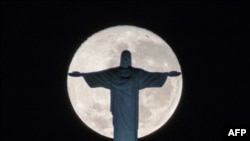Disir
Platinum Member
- Sep 30, 2011
- 28,003
- 9,611
- 910
Even though it will be nearly invisible to skywatchers, a rare Black Moon will be in North American skies today (Sept. 30).
A Black Moon is a newer term that refers to the second new moon in a month. The moon goes through regular phases because of its changing alignment with the Earth and the sun. The new moon phase occurs when the sun is completely illuminating the far side of the moon, making the Earth-facing side completely dark and nearly impossible to see.
But just like the term Blue Moon — which refers to the second full moon in a month — the term Black Moon has no scientific significance, at least not usually. The exception is when the new moon blocks the disk of the sun in the sky, producing a solar eclipse. [Black Moon 2016: What It Is & Why You Can't See It]
Rare Black Moon Rises Today, But Don't Expect to See It!
It's completely awesome and we can't see it but, if we could.......it would be completely and totally awesome.
A Black Moon is a newer term that refers to the second new moon in a month. The moon goes through regular phases because of its changing alignment with the Earth and the sun. The new moon phase occurs when the sun is completely illuminating the far side of the moon, making the Earth-facing side completely dark and nearly impossible to see.
But just like the term Blue Moon — which refers to the second full moon in a month — the term Black Moon has no scientific significance, at least not usually. The exception is when the new moon blocks the disk of the sun in the sky, producing a solar eclipse. [Black Moon 2016: What It Is & Why You Can't See It]
Rare Black Moon Rises Today, But Don't Expect to See It!
It's completely awesome and we can't see it but, if we could.......it would be completely and totally awesome.
